ETL is an acronym for the “extract, transform, and load” process. This process helps in handling data by editing, transferring, and storing the data files in a desired data-storage system. The ETL tools are developed to work on the basic principles of the ETL process. To understand this process and the related tools, this article will walk you through all the important aspects of ETL tools.
ETL And Working Principles of The Tools
Extract, transform, and load (ETL) is a process that segregates the data to make it easy to load on data storage systems. As the name suggests, this process includes three different stages along which the ETL tools run:
Extract: The extraction stage involves the decoding and retrieving of data from the source. The source might be a single or multiple system where data is collected. Various sources like a website, data platforms, and even mobile apps act as data sources. This data is in its raw form and therefore migrated to temporary storage. All the other stages are dependent on the extraction stage as data is decoded for a certain quality. Transform: After the extraction process, the transformation stage helps convert the data files. This conversion makes the data compatible with the system for handling purposes. The transformation stage helps in filtering the data and then storing it in a sorted form. This stage is crucial to correct any errors and remove duplicates of the data. Load: the loading stage forms the final stage of the ETL process where process data is loaded onto the database systems. Data flows from the database system into the intended system in a simplified manner. This process is important to access the data in its truest form, preparing it for any further process. Real-time processing of data and tracking of the sent data are also included in this process.
By sticking to this flow, the ETL process becomes efficient and does not cause any type of error during data transmission. ETL process reduces the overall time required to load the data into the database system. Replacing manual techniques, ETL tools have become an efficient alternative for data handling processes. We will now learn about these ETL tools.
ETL Tools
An ETL tool is nothing but a software-based application that is configured to automate ETL processes. Due to the automation in these tools, the process becomes fast, efficient, and free of any errors. These tools carry out the ETL process to improve its overall quality. With the help of a user-friendly interface, these tools offer a platform to conduct direct business between consumers and organizations. The ETL tools are essential for organizations that have a data-oriented structure. To further improve the accessibility of these tools, they are divided into various types. These types differ from each other, based on their architecture and supporting vendors. Various factors are considered while selecting an ETL tool. We have explained a few important factors below.
Compatibility with Data Integration: The tool must be compatible with data integration methods to connect various data sources and destination nodes. This allows the use of a wider range of integrations made especially for ETL tools. Customization Support: Every organization has its requirements according to which the ETL tool must adapt. The tool must allow different levels of customization to tune it according to the data collection process of an organization. Automation: Organizations that handle a large amount of data in a given time must process it efficiently. To replace the slow-paced manual process, an ETL tool must allow automation to automatically configure the ETL process. Security: Security is an important factor in the ET tool. Due to the transfer of sensitive data in large amounts, it becomes important to keep the process tamper-proof. The security feature of an ETL tool allows encryption of the data from end-to-end terminals, keeping it safe. Cost: The use of ETL tools is not limited to large organizations. Small-scale organizations or start-ups also find these tools important and use them for their data-management process. Therefore, a tool must be priced in a way to attract all types of organizations.
With the help of these factors, you can select the right ETL tool that suits your application. We are now aware of the governing factors that make each tool different from the others. This will help you understand the different types of ETL tools.
Types of ETL Tools
As mentioned earlier, the ETL tools are divided based on their architecture and supporting vendor. There are over four different categories of ETL tools, which are further explained in detail:
1. Open-Source ETL Tools
Due to their simplicity, open-source ETL tools have made their way to the marketplace. Being open-source tools, they offer direct access to their source code. It makes the tool more flexible and adaptable to an organization’s functionality. Various organizations use the open-source ETL tool to access and modify the source code. The user also gets to design their graphical user interface, to monitor various processes. Apart from access to the source code, some of these tools are free to use. Being an open-source tool, the public nature of its contribution can make the tool’s security vulnerable to external attacks.
2. Enterprise Software ETL Tools
ETL tools developed and maintained by commercial enterprises are known as enterprise software ETL tools. These tools offer a more evolved experience regarding the ETL process. The reason behind the good performance of these tools is the amount of time and experience invested by the commercial enterprise. These tools offer various features like advanced GUIs, continuous support for the database system, and improved functionality. The organization which developed these tools keeps a tab on all the necessary documentation of the tool, allowing support to a diverse range of user groups. Due to these features, the enterprise software ETL tool carries a premium price.
3. Cloud-Based ETL Tools
The cloud-based ETL tools were developed by keeping the rising popularity of cloud technology in mind. These tools, as the name suggests, are connected to the cloud servers to allow seamless integration of ETL processes. These tools offer better efficiency compared to the other types. Cloud technology is already known for its faster connectivity, availability on demand, and flexibility. Due to connectivity with cloud service providers (CSPs), these tools allow the processing of data within a shared network. CSP is also the reason behind the limited use of this tool since it can only be used within an organization’s database center (does not support external cloud servers).
4. Custom ETL Tools
Due to the limitations of other ETL tools for personalized configuration, custom tools were developed. These tools allow an organization to customize its tool with the help of programming languages. This keeps the tool more flexible to an organization’s workflow, eliminating unnecessary solutions. Languages like Java, Python, SQL, etc are used to build these tools. The miscellaneous activities like maintenance, testing, and updating of the tool are done by the organization. In short, the custom ETL tools require in-house resources to keep them running. Many brands have developed their version of ETL tools based on these four types of ETL tools. Now that we have an idea about the type of ETL tools, we will go through different ETL tools. These tools are available in the market, providing the user or organizations with a wide range of alternatives. The next section will explain each tool in detail to assist your selection process.
List of ETL Tools
Now that we know the basics of ETL tools, we can understand each aspect of these tools. It is natural to get confused while selecting the best ETL tool that fits your demand. We have compiled a list of the best ETL tools to ease your selection process.
1. IBM Infosphere DataStage
The IBM DataStage is an enterprise ETL tool, developed by IBM with a client-server architecture. This tool has a user-friendly GUI that users can operate to establish data transfer between multiple sources. This tool can perform all types of complex transformations on the data. This transformed data is then delivered to the destined data storage or database system. With faster data transfer and zero errors, this tool can adapt automation to balance the load of data. Organizations with a large number of users use this tool. Top Features:
Enterprise software ETL tool Supports IBM’s infosphere information server ecosystem Allows creation of custom data pipelines Built-in monitoring over the development, testing, and deployment of the tool supports compatible with AI applications
Pricing:
Free trial available Paid plan pricing on demand
2. Integrate.io
Integrate.io is one of the leading cloud-based ETL tools. It supports low-code data integration, making it compatible with a wider range of integration platforms. It can use multiple connectors at a time to build an automated data connection. Even with an increase in the data volume, this tool automatically manages the load of data. This tool is popular with e-commerce websites due to its consumer-oriented operation. Top Features:
Cloud-based ETL tool Supports a wide range of integrations Accepts data from any type of single-source Suitable for e-commerce websites Compliant with standard security norms and other certifications
Pricing:
Free 14-day trial Customized paid plans are available
3. Skyvia
Skyvia falls under the open-source type of ETL tool. Enabled with the cloud data platform, it supports data integration with zero coding. Created by Devart, a well-known developer of data-access solutions, this tool has undergone rigorous testing in a dedicated R&D department. This tool is compatible with the CRM platforms like Salesforce, Dynamics CRM, etc. With the help of cloud-backup, SQL endpoints, etc. features, this tool can work with multiple data sources. Top Features:
Open-source type ETL tool Supports connection with multiple data sources Integration configuration with zero coding Used by popular CRM platforms Compatible with automation
Pricing:
Free trial available Paid plans range from 15 USD to 399 USD per month
4. IRI Voracity
IRI Voracity is a cloud-enabled ETL tool that affordably allows data management. This tool works with the CoSort engine to establish an efficient data transmission process. It can accept data input from numerous sources and process this data with the help of a production analytic platform. The user of the Voracity tool is provided with the option of creating real-time operations with design. Smaller,mid-sized, and non-profit organizations use this tool. Freelancers and governments also use this tool in certain scenarios. Top Features:
Cloud-enabled ETL tool Accepts multiple data input sources including big data platforms Efficient transformation process with multi-threading and powered by CoSort engine Built-in features to segregate, clean, filter, or standardize data values Suitable for small to mid-level organizations
Pricing:
Includes free and live demo Yearly paid plans available with a quote on demand
5. Informatica PowerCenter
The Informatica PowerCenter is also an enterprise-software ETL tool. It has a meta-data-driven architecture developed for improved connection between IT teams and database systems. This tool can handle the latest formats of data like PDF, JSON, XML, etc. With the support for machine data from the Internet of Things, this tool can be completely automated. Top Features: Pricing:
Free plan available Paid plans on demand
6. SAS Data Management
SAS Data Management is an enterprise-software ETL tool. It is made special for the data integration platforms to connect data assertive of its promotions. By using an optimized workflow, it can fetch data from legacy and cloud systems. The tool offers centralized connectivity to an organization’s business. Due to a flexible architecture, this tool can also be paired with different environments or third-party data handling systems. Top Features:
An enterprise-software ETL tool Offers a graphical mapping of the data Flexible with different environments and platforms Efficient data handling with reduced operational cost Suitable for organizations where cloud and legacy systems are used
Pricing:
Free trails available with paid plans on demand
7. Apache Airflow
Apache Airflow is an open-source ETL tool that monitors the workflow of a data system. The interface of this tool is web-based to offer a better command over the data management process. With the help of directed acyclic graphs, all the workflows are shown in a graphical form. This allows the user to understand and manage different data-management tasks easily. The tool supports integration with data science and data engineering tools like Pandas and Apache Spark. This tool is an ideal option for large organizations where scalability and the ability to manage complex workflow are needed. Top Features:
Open-source type ETL tool Compatible with integration tools like Apache Spark and Pandas Suitable for organizations with large data workflow User-friendly interface with a graphical representation of the work
Pricing:
Open-source tool and hence free-to-use
8. Oracle Data Integrator
Oracle Data Integrator is an enterprise-software ETL tool that is developed by the Oracle brand. The tool uses a graphical user interface to allow the user full control over establishing connections and management of data. This tool is specially developed for larger-scale organizations where constant access to data is needed. This tool supports many integration platforms like Oracle Warehouse Builder and Oracle GoldenGate. These integrations help in handling a high volume of data. Top Features:
An enterprise-software ETL tool developed by Oracle The redesign of the data workflow is possible An efficient data transformation process Automatic error detection with recycling Supports integration platforms like Warehouse Builder and GoldenGate
Pricing:
Free cloud trial with an option for paid plans
9. Talend Open Studio
Talend Open Studio is an open-source ETL tool developed by the Talend brand. This tool is one of the older tools in the market with data integration abilities. It can easily extract, transform, and load huge volumes of data. With the help of data integration tools, it helps in monitoring the data workflow. It is capable of receiving data from multiple sources and handles this data efficiently to store it on a database system. Business intelligence tools and big data organizations popularly use it. Top Features:
An open-sourced ETL tool Older ETL tools compatible with a wider range of data integration tools User-friendly GUI for increased productivity Supports deployment with cloud systems A dedicated technical support team
Pricing:
Free-to-use tool due to the open-source model
10. Fivetran
Fivetran is a cloud-based ETL tool with a simplified data management feature. This tool has a user-friendly UI which helps manage data and multiple sources. Along with data management, this tool also focuses on the security of data with improved privacy controls. The transformation process can be automated to handle large volumes of data. It also ensures real-time monitoring of the data workflow. 24/7 technical support is also provided to ensure the smooth working of the tool. It is suitable for websites, applications, and server-based systems. Top Features:
A cloud-based ETL tool User-friendly UI for efficient data management Security and privacy control over data Allows automated transformation process 24/7 technical support Compatible with applications, websites, and server-based systems
Pricing:
Free trial available Paid plan starts from 59.99 USD and goes up to 239.99 USD per month
11. Coupler.io
Coupler.io is also a cloud-based ETL tool known as an all-in-one solution for data management. It offers an analysis of data along with automation, to improve the business of organizations. The data collection and transformation process is efficient enough that it can be executed without using any coding language. Due to a simple user interface, a non-technical user can also handle the tool easily. It also supports automation of the data management process to handle a huge volume of data. With integration support for HubSpot, this tool can be connected to platforms like Google Sheets, Excel, etc. It is suitable for organizations where multiple integration tools are used. Top Features:
A cloud-based ETL tool All-in-one platform for data analytics and automation Simple user interface with zero coding requirements Allows export of data to Excel, Google Sheets, BigQuery, etc platforms Used by organizations with multiple integration tools
Pricing:
Free trial available Paid plans range from 49 USD to 249 USD per month
12. Dataddo
Dataddo is a cloud-based ETL tool that is developed as a user-friendly tool. With zero coding, this tool is used by users with zero-technical knowledge. As a result, it becomes easy to build a simplified workflow of data. This tool can adapt to an already deployed workflow without needing any configuration. As a result, this tool can focus fully on data integration while maintaining the data workflow. Due to a smooth transfer of data between source and database systems, this tool can be used for organizations involved in digital marketing. Top Features:
A cloud-based ETL tool User-friendly UI with no compulsion of coding The adaptive architecture to adjust with the current workflows A centralized data management system to keep a track of data transfer Compatible with various integration platforms
Pricing:
Free plans available Paid plan between 99 USD to 349 USD per month
13. Dextrus
Dextrus is also a cloud-based ETL tool that offers various services like data profiling, validation, quality control, etc. This tool offers an automated ETL process that takes care of data management without manual interference. This helps in keeping the ETL process efficient and at a rapid pace. Supporting a wider range of integration platforms, it allows the collection of data via multiple sources. Organizations with strong server-based data collection find this tool useful. Top Features:
A cloud-based ETL tool Offers validation, profiling, quality control, reconciliation, etc of data Supports automated processes for improved efficiency Suitable for organizations with a strong server-based data collection
Pricing:
Comes with a 15-day free trial Paid plans available
Conclusion
The ETL tools have simplified the data handling process with the help of streamlined management. These tools are divided into various types, each with an advantage over the others. This article helps you understand the importance of the ETL process, its tools, their working, etc. it also walks you through a detailed list of the best ETL tools available in the market. By studying the information about each tool, we can select the best ETL tool that suits our purpose. With this discussion’s help, we selected our favorite tools from the list.
The Talend Open Studio ETL tool is selected for its adaptability among the only two open-sourced options. This tool has been developed by the Talend brand and possesses the experience factor. The tool can easily extract, transform, and load large volumes of data. Its data integration capabilities enable users to monitor data workflows effectively. The tool can efficiently receive data from multiple sources and manage it effectively to store it in a database system. It is a popular choice among organizations that use business intelligence tools and big data. When a higher volume of data is involved, the powerful IBM Infosphere DataStage ETL tool becomes an ideal choice. This tool is designed and developed by IBM for a client-server architecture. The tool offers a user-friendly GUI that users can easily operate to establish data connections between multiple sources. It is capable of performing complex transformations on the data. The data is then delivered to the intended data storage or database system. With faster data transfer and minimal errors, the tool can automate the management of data loads. Hence, it is used by organizations with a large number of users. The Coupler.io ETL tool offers more value than its cost. This is a cloud-based ETL tool that is widely regarded as an all-in-one solution for data management. The tool is capable of analyzing data and automating tasks to improve the working of organizations. The data collection and transformation process is highly efficient and does not require any coding language. This user-friendly UI makes it easy for non-technical users to handle the tool. With automation of the data management process, it can handle large volumes of data. Coupler.io also provides integration support for HubSpot to connect platforms like Google Sheets and Excel. This makes it an ideal choice for organizations that use multiple integration tools.
Comment * Name * Email * Website
Δ



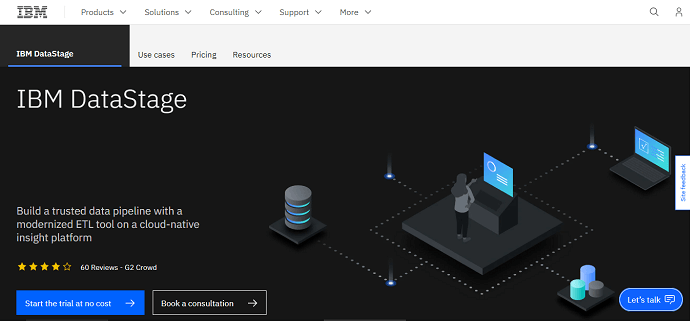
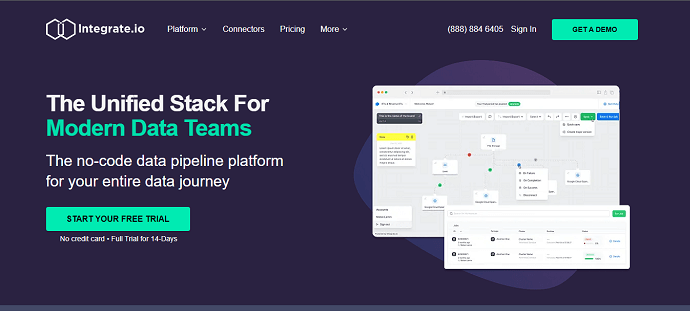
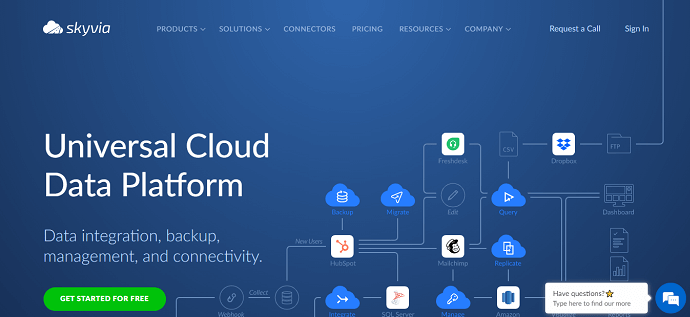
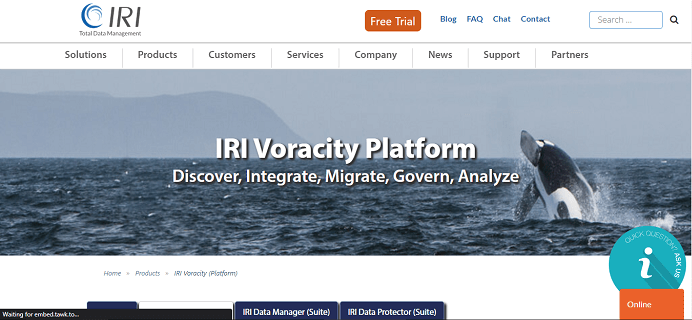
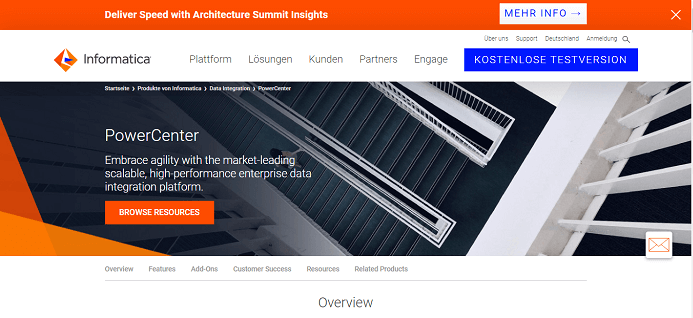

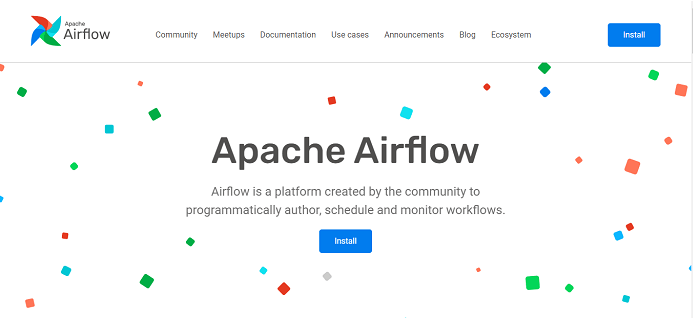
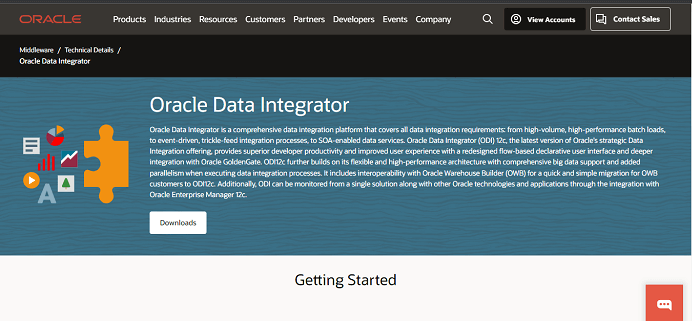
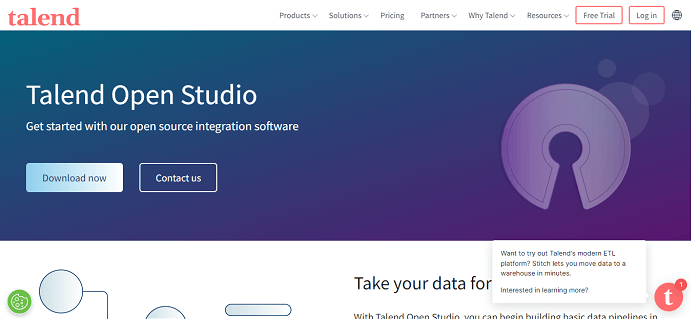
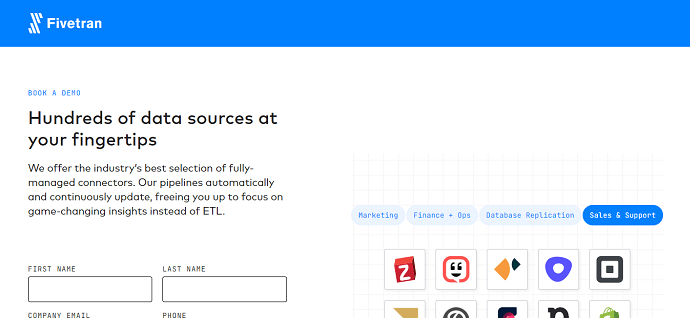
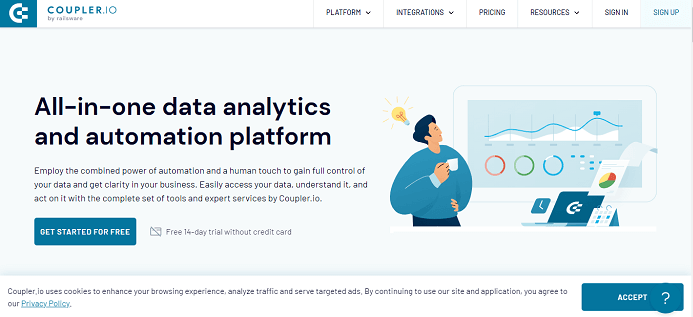
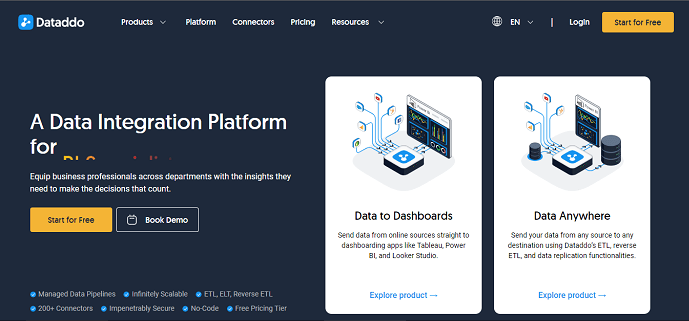



![]()